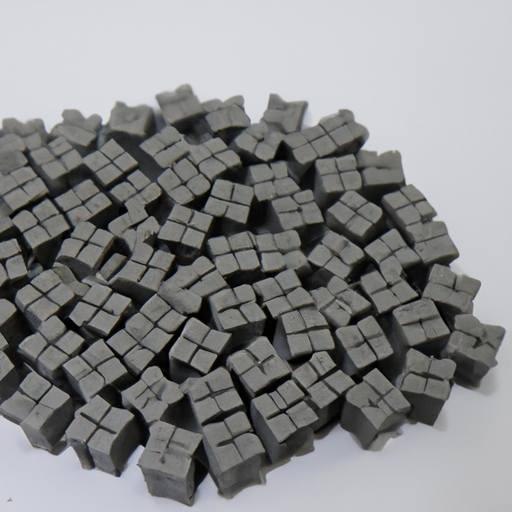What Industries Are the Application Scenarios of Cement Resistors Included In?
I. Introduction
Cement resistors are a vital component in the realm of electrical engineering, serving as essential elements in various electronic circuits. These resistors, made from a mixture of cement and conductive materials, are known for their robustness and ability to withstand high temperatures and environmental stressors. Their unique properties make them indispensable in numerous applications across different industries. This blog post aims to explore the various industries that utilize cement resistors, highlighting their significance and the specific roles they play in modern technology.
II. Understanding Cement Resistors
A. Composition and Characteristics
Cement resistors are primarily composed of a blend of cement, carbon, and other conductive materials. This composition grants them several advantageous characteristics:
1. **Materials Used**: The primary materials include cement, which provides structural integrity, and carbon, which contributes to the resistive properties. Other additives may be included to enhance performance and durability.
2. **Thermal and Electrical Properties**: Cement resistors are known for their high thermal stability, allowing them to operate effectively in extreme conditions. They also exhibit excellent electrical properties, making them suitable for high-power applications.
B. Types of Cement Resistors
Cement resistors can be categorized into two main types:
1. **Fixed Resistors**: These resistors have a predetermined resistance value and are commonly used in applications where a stable resistance is required.
2. **Variable Resistors**: Also known as potentiometers, these resistors allow for adjustable resistance, making them versatile for various applications.
C. Advantages of Cement Resistors
Cement resistors offer several advantages that make them a preferred choice in many applications:
1. **High Power Rating**: They can handle significant power loads, making them suitable for high-performance applications.
2. **Durability and Longevity**: Their robust construction ensures a long lifespan, reducing the need for frequent replacements.
3. **Resistance to Environmental Factors**: Cement resistors are resistant to moisture, dust, and temperature fluctuations, making them ideal for use in harsh environments.
III. Key Industries Utilizing Cement Resistors
Cement resistors find applications in a wide range of industries, each leveraging their unique properties to enhance performance and reliability.
A. Automotive Industry
The automotive industry has seen a significant shift towards electric vehicles (EVs), where cement resistors play a crucial role.
1. **Role in Electric Vehicles (EVs)**: In EVs, cement resistors are used in battery management systems to ensure optimal performance and safety. They help regulate the flow of electricity, preventing overheating and potential damage.
2. **Applications in Engine Control Units (ECUs)**: Cement resistors are also integral to ECUs, where they assist in managing engine performance and emissions, contributing to overall vehicle efficiency.
B. Telecommunications
In the telecommunications sector, cement resistors are essential for maintaining signal integrity.
1. **Use in Signal Processing Equipment**: They are employed in various signal processing devices, ensuring that signals are transmitted accurately without distortion.
2. **Importance in Network Infrastructure**: Cement resistors are critical in network infrastructure, where they help manage power distribution and protect sensitive components from voltage spikes.
C. Industrial Automation
The rise of automation in industries has led to increased demand for reliable components like cement resistors.
1. **Applications in Robotics**: In robotics, cement resistors are used in control systems to manage power and ensure precise movements.
2. **Use in Control Systems**: They are also utilized in various control systems across manufacturing processes, enhancing efficiency and reliability.
D. Renewable Energy
As the world shifts towards sustainable energy sources, cement resistors have found a place in renewable energy technologies.
1. **Role in Solar Inverters**: In solar energy systems, cement resistors are used in inverters to convert DC power generated by solar panels into AC power for use in homes and businesses.
2. **Applications in Wind Turbines**: They are also employed in wind turbines, where they help manage power output and protect electrical components from surges.
E. Consumer Electronics
Cement resistors are prevalent in consumer electronics, where they contribute to the functionality and reliability of devices.
1. **Use in Home Appliances**: Many home appliances, such as washing machines and microwaves, utilize cement resistors to manage power and ensure safe operation.
2. **Applications in Audio Equipment**: In audio devices, cement resistors help maintain sound quality by managing signal levels and preventing distortion.
F. Medical Devices
In the medical field, the reliability of components is paramount, making cement resistors a valuable asset.
1. **Importance in Diagnostic Equipment**: Cement resistors are used in diagnostic devices, where they help ensure accurate readings and reliable performance.
2. **Applications in Monitoring Devices**: They are also employed in patient monitoring systems, where they contribute to the safety and effectiveness of medical care.
IV. Emerging Trends and Innovations
As technology evolves, so do the applications and innovations surrounding cement resistors.
A. Advancements in Material Science
Recent advancements in material science have led to the development of new formulations for cement resistors, enhancing their performance and expanding their application range.
B. Integration with Smart Technologies
The integration of cement resistors with smart technologies is becoming increasingly common. This includes their use in smart grids and IoT devices, where they help manage power distribution and enhance connectivity.
C. Sustainability and Eco-Friendly Practices
With a growing emphasis on sustainability, manufacturers are exploring eco-friendly practices in the production of cement resistors, aiming to reduce environmental impact while maintaining performance.
V. Challenges and Considerations
Despite their advantages, cement resistors face several challenges in the market.
A. Limitations of Cement Resistors
While durable, cement resistors can be bulkier than other types of resistors, which may limit their use in compact electronic devices.
B. Competition with Alternative Technologies
Cement resistors face competition from alternative technologies, such as surface-mount resistors, which offer smaller sizes and potentially lower costs.
C. Regulatory and Compliance Issues
Manufacturers must navigate various regulatory and compliance issues, particularly in industries like automotive and medical, where safety and reliability are critical.
VI. Conclusion
Cement resistors play a crucial role in a wide array of industries, from automotive to renewable energy. Their unique properties, including high power ratings, durability, and resistance to environmental factors, make them indispensable in modern technology. As industries continue to evolve, the demand for cement resistors is likely to grow, driven by advancements in material science and the integration of smart technologies.
In summary, cement resistors are not just passive components; they are active players in the advancement of technology across various sectors. Their importance cannot be overstated, and as we look to the future, they will undoubtedly continue to be a cornerstone of electrical engineering and innovation.
VII. References
1. Academic Journals
2. Industry Reports
3. Technical Manuals and Standards
This blog post provides a comprehensive overview of the application scenarios of cement resistors across various industries, emphasizing their significance and the evolving landscape in which they operate.
What Industries Are the Application Scenarios of Cement Resistors Included In?
I. Introduction
Cement resistors are a vital component in the realm of electrical engineering, serving as essential elements in various electronic circuits. These resistors, made from a mixture of cement and conductive materials, are known for their robustness and ability to withstand high temperatures and environmental stressors. Their unique properties make them indispensable in numerous applications across different industries. This blog post aims to explore the various industries that utilize cement resistors, highlighting their significance and the specific roles they play in modern technology.
II. Understanding Cement Resistors
A. Composition and Characteristics
Cement resistors are primarily composed of a blend of cement, carbon, and other conductive materials. This composition grants them several advantageous characteristics:
1. **Materials Used**: The primary materials include cement, which provides structural integrity, and carbon, which contributes to the resistive properties. Other additives may be included to enhance performance and durability.
2. **Thermal and Electrical Properties**: Cement resistors are known for their high thermal stability, allowing them to operate effectively in extreme conditions. They also exhibit excellent electrical properties, making them suitable for high-power applications.
B. Types of Cement Resistors
Cement resistors can be categorized into two main types:
1. **Fixed Resistors**: These resistors have a predetermined resistance value and are commonly used in applications where a stable resistance is required.
2. **Variable Resistors**: Also known as potentiometers, these resistors allow for adjustable resistance, making them versatile for various applications.
C. Advantages of Cement Resistors
Cement resistors offer several advantages that make them a preferred choice in many applications:
1. **High Power Rating**: They can handle significant power loads, making them suitable for high-performance applications.
2. **Durability and Longevity**: Their robust construction ensures a long lifespan, reducing the need for frequent replacements.
3. **Resistance to Environmental Factors**: Cement resistors are resistant to moisture, dust, and temperature fluctuations, making them ideal for use in harsh environments.
III. Key Industries Utilizing Cement Resistors
Cement resistors find applications in a wide range of industries, each leveraging their unique properties to enhance performance and reliability.
A. Automotive Industry
The automotive industry has seen a significant shift towards electric vehicles (EVs), where cement resistors play a crucial role.
1. **Role in Electric Vehicles (EVs)**: In EVs, cement resistors are used in battery management systems to ensure optimal performance and safety. They help regulate the flow of electricity, preventing overheating and potential damage.
2. **Applications in Engine Control Units (ECUs)**: Cement resistors are also integral to ECUs, where they assist in managing engine performance and emissions, contributing to overall vehicle efficiency.
B. Telecommunications
In the telecommunications sector, cement resistors are essential for maintaining signal integrity.
1. **Use in Signal Processing Equipment**: They are employed in various signal processing devices, ensuring that signals are transmitted accurately without distortion.
2. **Importance in Network Infrastructure**: Cement resistors are critical in network infrastructure, where they help manage power distribution and protect sensitive components from voltage spikes.
C. Industrial Automation
The rise of automation in industries has led to increased demand for reliable components like cement resistors.
1. **Applications in Robotics**: In robotics, cement resistors are used in control systems to manage power and ensure precise movements.
2. **Use in Control Systems**: They are also utilized in various control systems across manufacturing processes, enhancing efficiency and reliability.
D. Renewable Energy
As the world shifts towards sustainable energy sources, cement resistors have found a place in renewable energy technologies.
1. **Role in Solar Inverters**: In solar energy systems, cement resistors are used in inverters to convert DC power generated by solar panels into AC power for use in homes and businesses.
2. **Applications in Wind Turbines**: They are also employed in wind turbines, where they help manage power output and protect electrical components from surges.
E. Consumer Electronics
Cement resistors are prevalent in consumer electronics, where they contribute to the functionality and reliability of devices.
1. **Use in Home Appliances**: Many home appliances, such as washing machines and microwaves, utilize cement resistors to manage power and ensure safe operation.
2. **Applications in Audio Equipment**: In audio devices, cement resistors help maintain sound quality by managing signal levels and preventing distortion.
F. Medical Devices
In the medical field, the reliability of components is paramount, making cement resistors a valuable asset.
1. **Importance in Diagnostic Equipment**: Cement resistors are used in diagnostic devices, where they help ensure accurate readings and reliable performance.
2. **Applications in Monitoring Devices**: They are also employed in patient monitoring systems, where they contribute to the safety and effectiveness of medical care.
IV. Emerging Trends and Innovations
As technology evolves, so do the applications and innovations surrounding cement resistors.
A. Advancements in Material Science
Recent advancements in material science have led to the development of new formulations for cement resistors, enhancing their performance and expanding their application range.
B. Integration with Smart Technologies
The integration of cement resistors with smart technologies is becoming increasingly common. This includes their use in smart grids and IoT devices, where they help manage power distribution and enhance connectivity.
C. Sustainability and Eco-Friendly Practices
With a growing emphasis on sustainability, manufacturers are exploring eco-friendly practices in the production of cement resistors, aiming to reduce environmental impact while maintaining performance.
V. Challenges and Considerations
Despite their advantages, cement resistors face several challenges in the market.
A. Limitations of Cement Resistors
While durable, cement resistors can be bulkier than other types of resistors, which may limit their use in compact electronic devices.
B. Competition with Alternative Technologies
Cement resistors face competition from alternative technologies, such as surface-mount resistors, which offer smaller sizes and potentially lower costs.
C. Regulatory and Compliance Issues
Manufacturers must navigate various regulatory and compliance issues, particularly in industries like automotive and medical, where safety and reliability are critical.
VI. Conclusion
Cement resistors play a crucial role in a wide array of industries, from automotive to renewable energy. Their unique properties, including high power ratings, durability, and resistance to environmental factors, make them indispensable in modern technology. As industries continue to evolve, the demand for cement resistors is likely to grow, driven by advancements in material science and the integration of smart technologies.
In summary, cement resistors are not just passive components; they are active players in the advancement of technology across various sectors. Their importance cannot be overstated, and as we look to the future, they will undoubtedly continue to be a cornerstone of electrical engineering and innovation.
VII. References
1. Academic Journals
2. Industry Reports
3. Technical Manuals and Standards
This blog post provides a comprehensive overview of the application scenarios of cement resistors across various industries, emphasizing their significance and the evolving landscape in which they operate.













